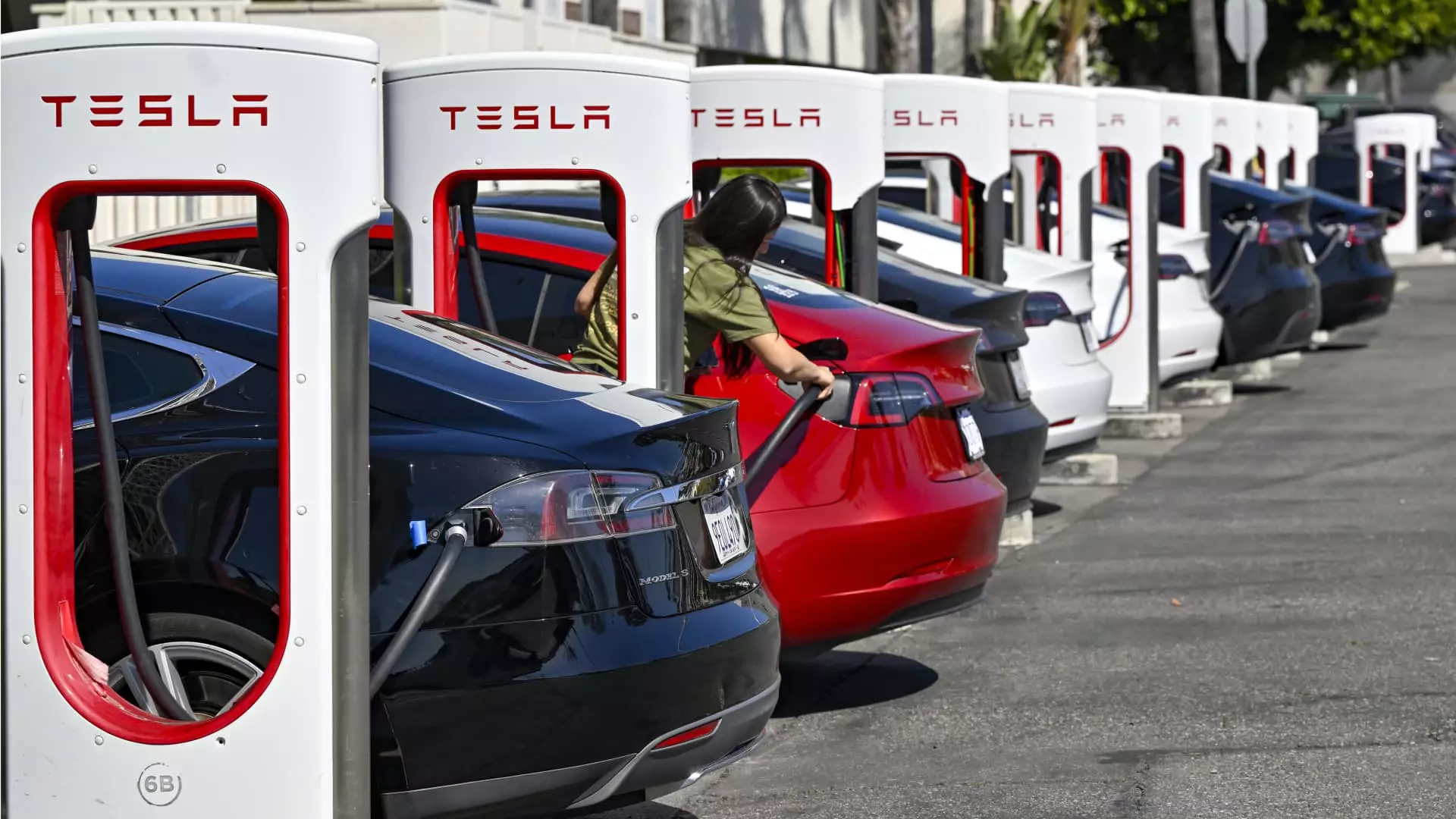The automotive industry has long been aware of the fact that a car loses value as soon as it is driven off the lot. However, the rapid depreciation of electric vehicles is taking this concept to a whole new level. According to a recent study by iSeeCars.com, the average price of a 1- to 5-year-old used EV in the U.S. has fallen by a staggering 31.8% over the past 12 months, resulting in a value loss of $14,418. In comparison, the average price of a similarly aged internal combustion engine vehicle has only decreased by 3.6%. This significant drop in EV prices poses a major challenge to the wider adoption of electric vehicles in the market.
Lower prices of used electric vehicles may make them more appealing to certain buyers. However, this steep depreciation can also have a negative effect on the demand for new electric vehicles. Karl Brauer, an executive analyst at iSeeCars, points out that the value that a new car loses in its first few years of ownership is one of the biggest expenses associated with owning a vehicle. As consumers become more aware of the rapid depreciation of EVs, they may become hesitant to invest in a new electric vehicle, affecting the overall growth of the market.
Stock analyst David Kuo, co-founder of the Smart Investor, has expressed his reservations about investing in the electric vehicle industry due to their inability to retain value. Kuo likens electric vehicles to consumer electronics like laptops and cell phones, which quickly lose their value and relevance after purchase. He predicts that EVs will face similar depreciation, with potential buyers realizing that their high initial cost does not hold up over time. This perception of rapid depreciation can deter investors from entering the EV market.
Representatives from major automakers such as VW and Toyota have also raised concerns about the resale value of electric vehicles. They have acknowledged that depreciation poses a challenge to the value proposition of their battery-powered vehicles. Kuo suggests that the software and computing capabilities of used EVs may become outdated, making them less appealing to buyers. Despite advancements in technology, the market conditions surrounding electric vehicles contribute significantly to their depreciation.
The drastic drops in used electric vehicle values in the U.S. have been largely attributed to aggressive price cuts by Tesla in response to the competitive EV market landscape. Tesla’s dominance in the U.S. EV market has led to a scenario where buyers are more inclined towards purchasing new Tesla models at lower prices rather than opting for used alternatives. This price war initiated by Tesla has influenced the overall market dynamics, pulling down the prices of both new and used electric vehicles.
The depreciation of electric vehicles presents a significant challenge to the broader adoption of EVs in the automotive market. Factors such as rapid technological advancements, market competition, and overproduction contribute to the devaluation of electric vehicles. Addressing these challenges will be essential for the sustainable growth and acceptance of electric vehicles in the mainstream automotive industry.


Leave a Reply